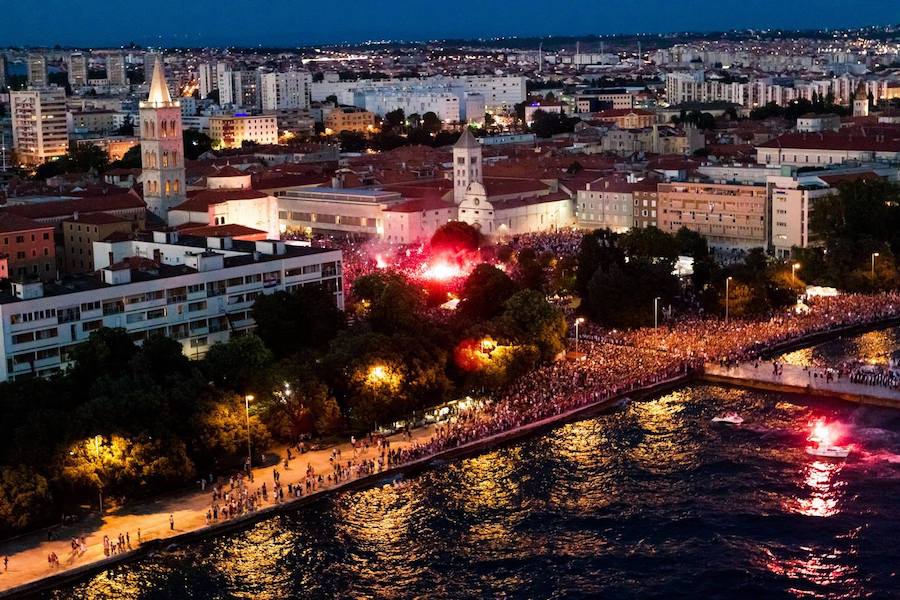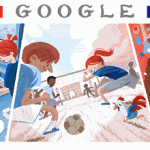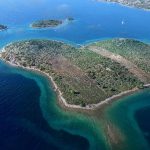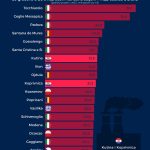July 20, 2018 — Croatia’s spectacular showing at the World Cup has ended. The squad dispersed to brief holidays amid transfer rumors and big-money contracts.
Can second place in the World Cup turn around a second-rate economy?
The victory rallies ended days ago. Yes, victory. Any notion of “second place” was largely ignored.
Burning flares, those cornea-scorching displays of Croatian national pride, have reverted to being distress signals.
Croatia’s national euphoria is over.
The potential cash flow isn’t.
The Croatian national team unintentionally expanded the country’s “brand”. Once known for its participation in one of Europe’s bloodiest wars. Globally recognized for its mythic coastline. Now, it’s also a football powerhouse. A very awkward one.
A country with a shambolic football league, virtually no high-caliber sports venues, must somehow profit off of athletic prowess. Granted, it’s an excellent opportunity for a homogeneous economy with low wages and a shrinking population.
To be exploited properly, Croatia’s football success would need to fuel a full-fledged convulsive change in the way the country does business; redefining an economy where one-sixth of the calendar year accounts for nearly one-fifth of gross domestic product.
To get a lasting economic boom, Croatia may have to find a new identity. It is no longer simply “Full of life.”
Now it’s full of… What exactly?
An Economic Boom In Waiting
The second-place finish will have an overall effect on Croatia’s GDP, according to analyst Luka Brkić. The exact amount may be impossible to decipher because of the tournament’s overlap with the tourism season.
The second place finish will reportedly also stuff the government’s coffers. The Tax Administration reported nearly 160 million transactions during the first three weeks of the tournament, with spending of almost 13 billion kuna — putting it well on its way to overshadowing last winter’s holiday shopping spree. But oh, to have won.
Estimates suggest France’s World Cup victory will add a 10th of a percentage point to the country’s predicted economic growth — increasing its GDP by about 21.3 billion euro, or nearly half Croatia’s entire economy.
In other words: France’s World Cup win alone will boost its national economy by about two Croatian tourist seasons.
Drone Shots Of Flares
The Croatian National Tourist Board (HTZ) said visits to its site during the tournament jumped 250 percent in comparison to the same period last year. It did its best to exploit the free publicity.
The board created a mini promotional campaign titled “Croatia Full Of Excellent Players” to take advantage of the bump in interest, especially in the build-up to the final. It’s been broadcast in Germany, Austria, Italy, the Netherlands, Sweden, Spain and Switzerland — home to Croatia’s most frequent guests, as well as the de facto homes of many of its players. It’s been effective.
Posts from the tourism board’s Facebook page reached 5 million people during the heady World Cup run. The social media ripple effect extended to HTZ’s Twitter and Instagram handles, which reached more than 10 million people during the tournament.
The board reportedly received plaudits from HTTPOOL, an agency representing Twitter. Saša Škorić, HTTPOOL’s director, said the tourism board had an uncanny strategy of timing posts to coincide with goals, half-time and the end of matches, when users were most active.
The tourism board then scored clever media coup by inviting Agence France-Press photographer Yuri Cortez for a family vacation. The camera-slinger was infamously smushed by the Croatian national team during the match against England. (He accepted the invite.)
“We are proud of our players and thank them immensely. Again, they proved that they are the best ambassadors of Croatian tourism,” HTZ head Kristijan Stanicic said in a press release.
Local tourism boards also utilized the publicity. Pula broadcast the final in its famous Arena, with 10,000 fans in attendance. The move gained it wide acclaim and attention. The northern Adriatic city has a knack for visionary tourism marketing, standing out in a land of often laughable publicity stunts.
HTZ piggy-backed on Pula’s idea with its own campaign declaring the Arena the “2nd-Best Place In The World To Watch World Cup Final”, leading to 350,000 views of drone shots of the viewing party.
“Reaction after the live broadcast of World Cup final in the Arena confirm we are doing a good job,” said Pula’s mayor Boris Miletić. “Our presentation of Pula has once again traveled the world. We showed we recognize the multiple advantages of online communication.”
Zadar — a small town with an outsized number of players in the Croatian squad — used its homegrown talent as a promotional vehicle. Though the attempt has its faults.
The montage of the spectacular hero’s welcome made up of exclusively football-centric scenes ends with the somewhat-jarring tagline “much more than football…”
Croatia’s consumers, however, maintained their focus.
The Great Čevapi Run
The Croatian Chamber of Commerce claims local economic activity overall jumped by 9 billion kuna during the World Cup. Expenditures on sport-event related items such as audio-visual equipment, snacks and beer jumped by 10 percent, according to the Chamber’s statistics. Spending on match day or the day before jumped between 11 and 15 percent. Caterers felt a surge as well.
Service industry revenue grew three percent to nearly 880 million kuna in comparison to the same period last year, between June 15 and July 15. Consumption increased 10 percent or more on match days. It should be noted: winning is more profitable.
Croatia’s semifinal match against England — a victory — increased spending more than the final. The match against England spurred 17 percent growth on booze and snack spending, eclipsing the 13 percent increase during the final.
One statistic showcased the oddball opportunities — and perversity — of a World Cup-driven boom. Meat megalith PIK Verbovec reportedly sold 2,2 million packages of cold cuts and 2 million sausages during the tournament, leading to a 10 percent jump in the company’s overall sales. The figures eclipsed the holiday season, traditionally the high point for meat products.
The nation was also consumed by čevapi fever. The company also sold 10 million of the little-minced meat pseudo-sausages, though it neglected to mention čevapi are widely considered Bosnia’s signature dish.
There will be — has to be — an inevitable increase in the sale of knock-off jerseys and football related paraphernalia as well. Though the dubious provenance of those items will make their economic hard to measure despite their overwhelming presence in local markets and sports stores.

Zadar welcoming its World Cup heroes. [Photo via Zadar Tourism Board’s Facebook page]
Unexpected Attention
The team’s performance created a flood of positive media coverage after the tournament. Some of it admittedly pure kitsch.
Mediatookit, a media engagement and monitoring firm, claims during the World Cup international media’s coverage of Croatia grew to three times more than the last three years combined.
It all leads to more than a million articles about Croatia, encompassing 60 billion page reads and reaching about 2 billion people, according to Mediatoolkit’s Tomislav Grubišić — more online media coverage than the last 28 years of Croatia’s existence (albeit online news wasn’t a factor during the war). That bump was felt at TCN too, of course.
But amidst the Google searches and čevapi mania, what’s the best next step?
“It’s hard to discern how much [of the growth] is football, how much is this euphoria, and how much tourism,” the analyst Brkić told N1 in an interview. He added there’s a danger the World Cup afterglow will only increase Croatia’s over-reliance on a single economic sector — tourism.
To avoid that fate, Croatians will have to imitate Luka Modrić and perhaps get creative.









